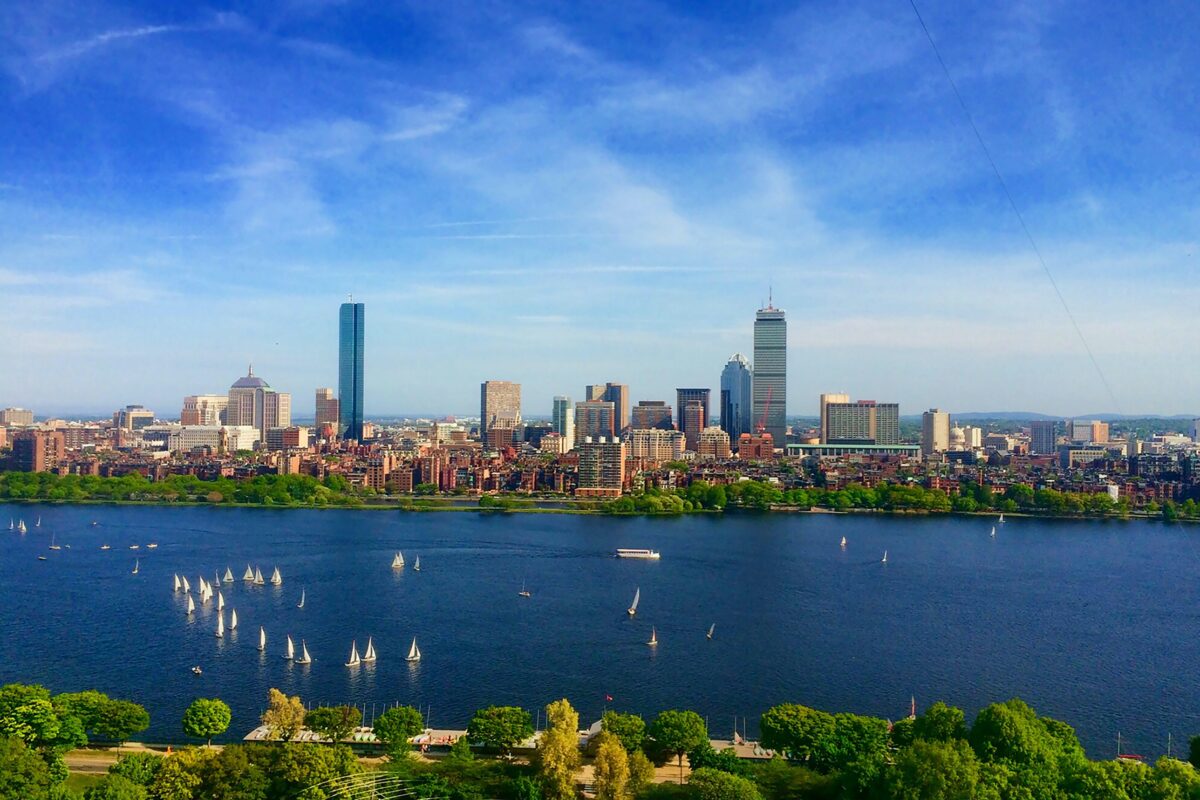On September 14th, 2022, the Boston City Council voted to adopt a new pilot program in Massachusetts that limits or bans the use of fossil fuels in new building developments. With a 9-3 vote, this decision is a step closer to achieving Boston’s goal of net zero emissions by 2050. Boston will join a handful of U.S. cities, including New York City, Washington, D.C., and Seattle, that have adopted similar legislation.
The state’s pilot program comes from a provision in House Bill 5060, a clean energy bill that Governor Charlie Baker signed into law on August 11th. “The pilot project will be administered by the Massachusetts Department of Energy Resources. It allows cities and towns to develop local ordinances that restrict or prohibit new building construction or major renovation projects that use fossil fuels, including through the withholding or conditioning of building permits.” The climate bill defines fossil fuel-free as “an entire building that … does not utilize coal, oil, natural gas, or other fuel hydrocarbons, including synthetic equivalents, or other fossil fuels … in its operations.” The only buildings exempt from this program are hospitals and laboratories. Provisions in the bill stipulate that only ten cities or towns may apply, and cannot do so until submitting a home rule petition, or a “request from a city for a new power from the state legislature.” The recent city council vote secured the home rule petition for Boston, making New England’s largest city eligible to apply for the state’s clean energy bill.
The vote signifies a turning point in Boston’s transition to clean energy. The adoption of this pilot plan would be seen as a victory for Mayor Michelle Wu, who prioritized climate change mitigation throughout her campaign. Mayor Wu stated in a press conference that she is “grateful to the Boston City Council for passing [the] home rule petition,” and “looks forward to working with community members and stakeholders to inform this process.” Ten municipalities have already submitted a home rule petition and intend to join the program. However, Boston was not one of the ten originally designated cities in line to adopt the pilot program. Three Massachusetts cities, including Arlington, Newton, and West Tisbury, are at risk of non-compliance with the bill’s affordable housing requirement. The bill requires that cities must have at least 10% affordable housing. West Tisbury city officials openly acknowledged that the town does not meet the bill’s criteria and may withdraw. Any availability would allow Boston to join the pilot program.
If successful, Boston may soon eliminate the use of fossil fuels in new construction projects. The City of Boston’s most recent Climate Action Report found that buildings account for nearly 70% of total emissions and transportation accounts for the remaining 30% of emissions. This program intends to cut fossil fuel emissions from the highest contributing sector and offers opportunities for innovation during the transition to renewable energy. According to Professor Nathan Phillips, a physiological ecologist and activist at Boston University’s Department of Earth & Environment, “gas infrastructure underpins the heating infrastructure in cities like Boston…but there’s another way to heat our homes which is safer, cleaner, more efficient, and climate-friendly.” Berkeley, California was the first city to implement a gas ban on construction projects and major renovations, and New York City will likely do so by 2024. The state pilot program will enable Boston to follow those initiatives and set a precedent for cities across the country to expand the future of clean energy. Professor Phillips emphasized that “we can and must get beyond the combustion economy.”
“There is no energy source that is free of impacts,” says Professor Phillips, “I am convinced that solar and wind are much much better solutions than fossil fuels. They are solutions and fossil fuels are dead ends for our future.” In a city of nearly 655,000 people, the transition toward renewable energy raises questions about equitability. If, for example, the city proposes strategies for the electrification of residential areas, which neighborhoods will be prioritized? What strategies ensure the transition away from gas infrastructure is sustainable? The goal is to transition sustainably, without causing what Professor Phillips calls a “utility death spiral”––the idea that as consumers transition to clean energy, utility fares increase for the remaining ratepayers. It comes as no surprise that Boston wants to avoid this.
The City of Boston’s Climate Action Report outlines two guiding principles to ensure equitable climate goals. The first states that “people of color and low-income communities must not be disproportionately impacted by climate hazards,” recognizing that BIPOC and low-income communities are often at the frontlines of environmental injustice. The second goal ensures that “benefits from climate mitigation and preparedness efforts be shared equitably among all people.” In the report, Rev. Mariama White-Hammond, Boston’s Chief of Environment, Energy, and Open Spaces writes “we still have a long way to go if we are going to create the sustainable, equitable, and resilient future that we all deserve.” Professor Phillips agrees the transition needs to be equitable. “Everyone wants choice. They want to feel like they have choice. And they want to have legitimate choice. And the reality of this is there is choice.”
Society is at a crossroads right now when faced with the future of clean energy. What future do we choose to envision? It is the responsibility of communities to uphold that vision, and in the process make our cities more equitable, safe, and innovative.
Sources
Climate Action Fiscal Year 2021 Report. Boston.gov. (2021). Retrieved November 5, 2022, from https://www.boston.gov/sites/default/files/file/2021/10/FY21%20Boston%20Climate%20A ction%20Report_2.pdf
Lisinski, C. (2022, September 14). Boston looms over fossil-fuel free construction pilot. WWLP. Retrieved November 5, 2022, from https://www.wwlp.com/news/state-politics/boston-looms-over-fossil-fuel-free-construction -pilot/
Pearl, L. (2022, August 12). Baker signs major Massachusetts climate bill despite concerns over fossil fuel limits, other provisions. Utility Dive. Retrieved November 5, 2022, from https://www.utilitydive.com/news/baker-massachusetts-climate-bill-offshore/629603/
Roberts, D. (2016, September 19). The key to tackling climate change: Electrify everything. Vox. Retrieved November 5, 2022, from https://www.vox.com/2016/9/19/12938086/electrify-everything
Somerville Community Corporation. (2020, February 26). What is a home rule petition? Somerville Community Corporation. Retrieved November 5, 2022, from https://www.somervillecdc.org/news/what-is-a-home-rule-petition/
Wintersmith, S. (2022, September 14). Boston moves to ban fossil fuels in new construction. GBH News. Retrieved November 5, 2022, from https://www.wgbh.org/news/politics/2022/09/14/boston-moves-to-ban-fossil-fuels-in-new construction

